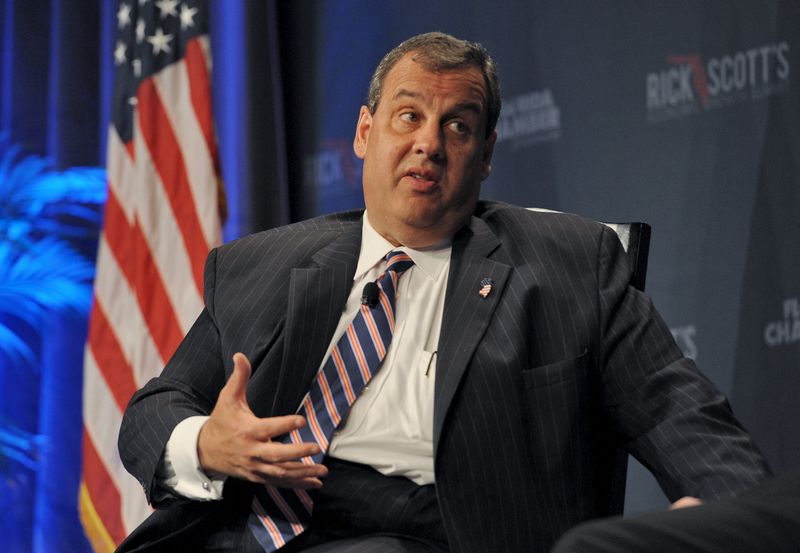By Megan Davies and Jonathan Stempel
NEW YORK (Reuters) - New Jersey's highest court on Tuesday ruled that Gov. Chris Christie can cut $1.6 billion from state pension funding, removing a hurdle for the Republican presidential hopeful's national ambitions and giving some temporary financial relief to the state.
The stakes were high for Christie, who has trailed in polls behind rivals such as Wisconsin Governor Scott Walker, a fellow Republican. Christie came under fire for his handling of the state's sluggish recovery as well as a scandal around the 2013 George Washington Bridge closure, which saw a former ally plead guilty to federal charges.
"This will be a much-celebrated victory after a year and a half of bad headlines," said Tim Albrecht, a Des Moines, Iowa, Republican strategist. "The question is, will a lone victory be enough or will Chris Christie be able to parlay this into something bigger."
Christie, who has not announced his candidacy for the Republican nomination to run for president in November 2016 but has started a political action committee, said in a statement the decision was an "important victory" for taxpayers.
Bill Kilberg, a labor lawyer in Washington and a Christie supporter said the decision would give donors "renewed confidence that he's the serious candidate we all knew that he was."
The state Supreme Court, in reversing a lower court ruling, said while it lamented the "staggering" loss of public trust resulting from broken promises, the pension payment was not a contractual obligation entitled to constitutional protection.
Christie cut a state contribution to the public pension system last year because of a revenue shortfall. The state's pension system has about $83 billion of unfunded liabilities and was funded at only about 44 percent in fiscal 2014.
Public-sector unions sued the administration, and in February Superior Court Judge Mary Jacobson sided with them, finding that a 2011 pension reform law, signed by Christie, created a contractual right that the state make its contribution. The state appealed to New Jersey's highest court, which heard arguments in May.
"That the State must get its financial house in order is plain," wrote Justice Jaynee LaVecchia in the opinion. "The need is compelling in respect of the State's ability to honor its compensation commitment to retired employees. But this Court cannot resolve that need in place of the political branches."
New Jersey has seen its credit rating downgraded nine times since Christie took office in 2010. Standard & Poor's said the state could be vulnerable to further downgrade if it does not solve its pension problem. Moody's said long term, the ruling "reinforces the state's ongoing reliance on onetime budget solutions."
Philip Fischer, municipal research strategist at Bank of America Merrill Lynch (NYSE:BAC), said the court essentially ruled that the contribution was so large it violated the state constitution's debt limitation clause.
"It takes the heat off the pension issue at least for a little while and allows the legislature and the unions to ... figure out a way to fund pensions consistent with the debt limitation in the constitution," he said.
All parties are now expected to negotiate a "comprehensive solution," said State Senate Republican Leader Tom Kean.
The Supreme Court voted to reverse the lower court ruling by five votes to two. Justice Barry Albin, one of the dissenters, said the decision "unfairly requires public workers to uphold their end of the law's bargain."
Hetty Rosenstein, New Jersey director of the Communication Workers of America, the largest union representing state workers, said they would have to try to change the constitution.

"It is devastating to all public employees, retirees, taxpayers, and families," said Wendell Steinhauer, president of the New Jersey Education Association, a teachers' union.